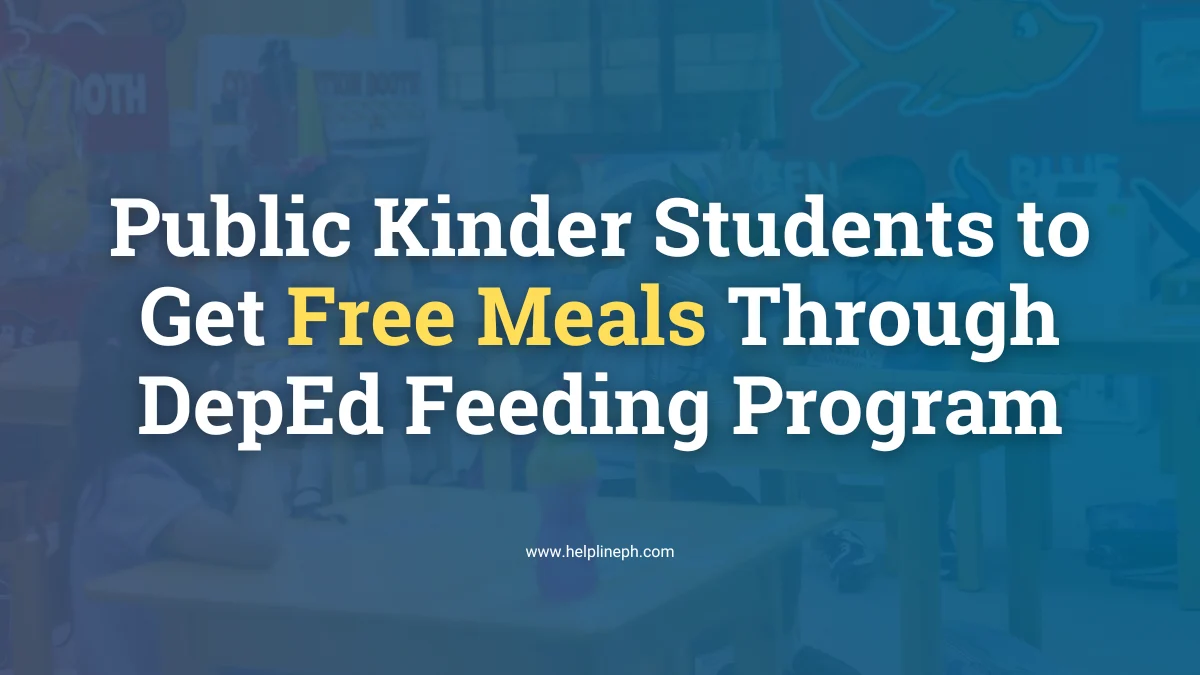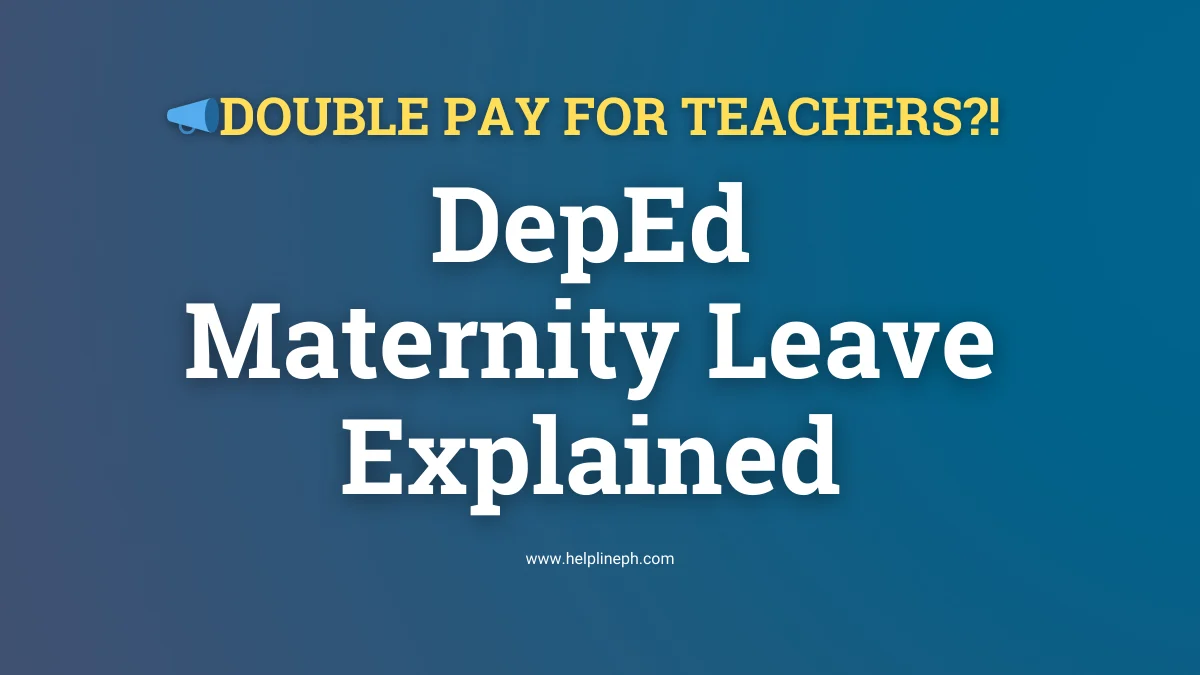DepEd feeding program is making a big change for young children. Starting this school year, all kindergarten students in public schools will get free meals every day. The Department of Education (DepEd) expanded its School-Based Feeding Program (SBFP) to help fight early childhood malnutrition.
This move is not just about giving food; it’s about giving hope. When children have proper nutrition, they can learn better, stay active in class, and grow healthy.
Why the DepEd Feeding Program Matters
Malnutrition is still a serious problem in the Philippines. According to the Food and Nutrition Research Institute, 18.1% of girls and 15.8% of boys aged 0 to 5 are malnourished. Among kids aged 5 to 10, 19.2% of girls and 22.2% of boys are undernourished.
The DepEd feeding program hopes to reduce these numbers by making sure every public kindergarten student eats a healthy meal daily.
Education Secretary Sonny Angara said:
“Kapag may sapat na nutrisyon ang mga bata, mas madali silang matuto. Hindi natin kailangan hintayin pang magutom o magkasakit sila bago kumilos.”
(When children have proper nutrition, they learn better. We don’t need to wait for them to get sick or hungry before acting.)
Who Will Benefit From the DepEd Feeding Program?
The program will help around 3.4 million kindergarten students and undernourished Grade 1 to 6 learners. This includes:
- All public school kindergarten students (healthy or undernourished)
- Severely wasted and wasted children in grades 1 to 6
DepEd is also proposing a P14 billion budget for 2026 to continue and expand this program.
Success Stories From the Program
The DepEd feeding program already showed good results:
✅ The number of severely wasted kindergarten students dropped from 113,451 to 47,281.
✅ Underweight rates fell by 80% in Regions II and XI.
✅ Students showed better energy, class participation, and weight gain.
Parents and teachers also noticed that children became more active in school and paid more attention during lessons.
How the Feeding Program Works
The School-Based Feeding Program gives one free meal every school day. Meals are designed to be healthy, with enough energy and nutrients for growing kids.
DepEd is also working with:
- Local government units (LGUs) to help in food delivery and monitoring.
- Barangay health workers to track children’s nutrition progress.
- Local farmers through home-grown school feeding models, which will supply fresh vegetables and other food products.
This not only helps children but also supports local farmers and communities.
Parents’ Role in Supporting the Program
Education Secretary Angara reminded parents and communities to take part in making this program successful:
“Bawat magulang, school officials, LGUs, at barangay health worker ay may papel para siguraduhing hindi lang basta nakakakain ang mga bata, kundi talagang nabubusog, inaalagaan, at nabibigyan ng lakas para umunlad.”
This means parents should still make sure their children eat healthy at home, not just in school.
Future Plans for the DepEd Feeding Program
DepEd wants to expand the program to include Grade 1 to 3 learners soon. They are also planning to partner with more local farmers to make sure schools get fresh, healthy food.
The Department of Health (DOH) is also working with local governments to further reduce malnutrition rates nationwide.
Why Proper Nutrition Improves Learning
Healthy children learn faster. Good nutrition gives:
- Better brain development
- More energy for school activities
- Stronger immune system
- Improved memory and focus
When kids are not hungry, they can listen better, join activities, and enjoy school.
Frequently Asked Questions (FAQs)
Who can join the DepEd feeding program?
All public kindergarten students and severely wasted Grade 1 to 6 learners can join.
What kind of food will be served?
Nutritious meals with vegetables, rice, and protein-rich food will be served daily.
How long will the program run?
It will run for the whole school year, with plans to continue in the coming years.
Will private school students be included?
No. The program is only for public school students.
Can parents volunteer?
Yes, parents and barangay workers can help in preparing and serving food.
Conclusion
The DepEd feeding program is more than just free food—it’s an investment in the future of Filipino children. When kids are healthy and full, they can dream bigger, study harder, and succeed in life.
As a parent or community member, you can help by supporting this program and encouraging children to eat healthy, both in school and at home.






